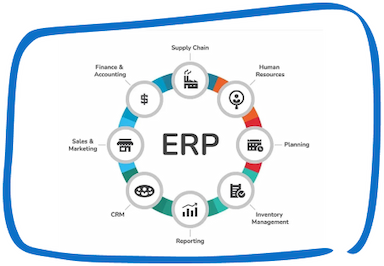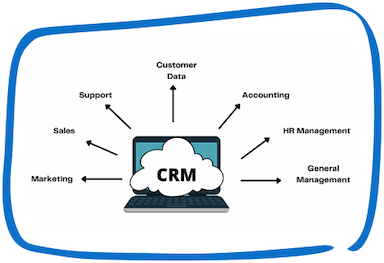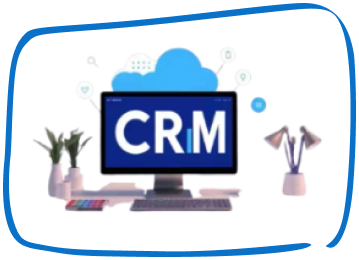Organizations use enterprise resource planning or ERP software, a complete system, to manage business operations. That includes accounting, human resources, procurement, inventories, and customer relationship management. In one way, ERP software helps companies simplify their operations. Thus, it increases productivity. But it also comes with a list of problems. In this blog, we will discuss some of the biggest ERP software problems and provide solutions to resolve them.
Resistant to adopt
User adoption is one of the biggest issues businesses encounter when implementing an ERP system into place. Employees might not want to learn a new system as they are resistant to change. It may result in improper system use and, eventually, a failure to take advantage of the software.
Solution:
It is crucial to give users thorough training both before and after the system goes live to overcome this issue. Organizations should include employees in the selection processes to ensure the system fits its objectives. A change management strategy must also be in place to deal with employee resistance to change.
Integration Issues
ERP software integrates multiple corporate processes into a single system. The software can be difficult to integrate with current systems, though. Inadequate integration could result in data loss, inaccurate reporting, and poor decision-making.
Solution:
Before installing the ERP system, businesses should have a clear integration plan to solve integration problems. The strategy should outline the systems that need to integrate. Also, you need to define the data that need to be shared and the integration method. It is also important to work with competent vendors who can help in the integration process.
Customization Costs
Because ERP software is so customizable, businesses can configure it to meet their unique needs. Customization, however, can be costly and time-consuming. As a result, it can be difficult for businesses with limited funds.
Solution:
Organizations should prioritize their demands and concentrate on customizing only the crucial features to reduce customization expenses. For non-critical functions, they should also think about using off-the-shelf solutions. Organizations can also collaborate with providers that offer flexible pricing structures that let them only pay for the features they need.
Data Security Risks
ERP software holds private corporate information. That includes financial information, contact details for clients, and employee records. As a result, cyber attackers view it as a prime target. Any data breach can result in large financial losses and reputation damage for the company.
Solution:
Organizations should have strong security measures in place. It involves access limits, data encryption, and regular backups, to handle data security issues. They should also conduct routine security audits to aware staff members about the threats. They should also train employees on how to safeguard the system.
Less Scalability
Many businesses start with limited ERP software implementation to reduce costs because it can be pricey. However, the system’s capacity to manage the increased demand may be limited as the business expands.
Solution:
Organizations should make growth plans earlier on to address limited scalability. They should pick a system with a clear upgrade path that can grow with their business. Companies should also regularly analyze and optimize their processes to ensure that the system can handle rising workloads.
Lack of Real-Time Reporting
For businesses to make wise decisions, real-time reporting is essential. Nevertheless, a lot of ERP systems don’t offer real-time data. It makes it difficult for businesses to respond rapidly to changes in the business environment.
Solution:
Organizations should adopt a business intelligence (BI) solution that connects with the ERP system to overcome the absence of real-time reporting. BI systems offer real-time reporting and analytics, enabling businesses to make quick, well-informed decisions.
Your business needs Elate ERP Software
You must conduct thorough research before selecting the best ERP provider for your company as a key decision-maker. Why not talk to someone who can assist you locate the perfect software partner? We can help you accomplish your implementation targets rather than battling the difficulties of ERP deployment alone.
Make an appointment with Elate right now to discuss ERP software.
Elate ERP software automates many corporate operations, including inventory management, accounting, and customer relationship management. Employees can use it to streamline these processes and reduce the likelihood of errors and delays.
Real-time data and analytics provided by the Elate ERP system allow the project manager to monitor the project’s progress, identify potential issues, and make informed decisions.
Elate ERP software is the device for teamwork. All teams and departments working on the ERP project can connect and collaborate. It could promote greater productivity and cooperation.
Last thoughts
It may be a management issue when a company expresses unhappiness with its ERP. The organization should have complete knowledge of ERP expectations. No matter what type of ERP you use, they have a similar history. And they will support an organization’s success as long as you use the technology correctly and don’t try to battle against it.
Speak with Our Team!
4.9 Stars
1k+ reviews on






